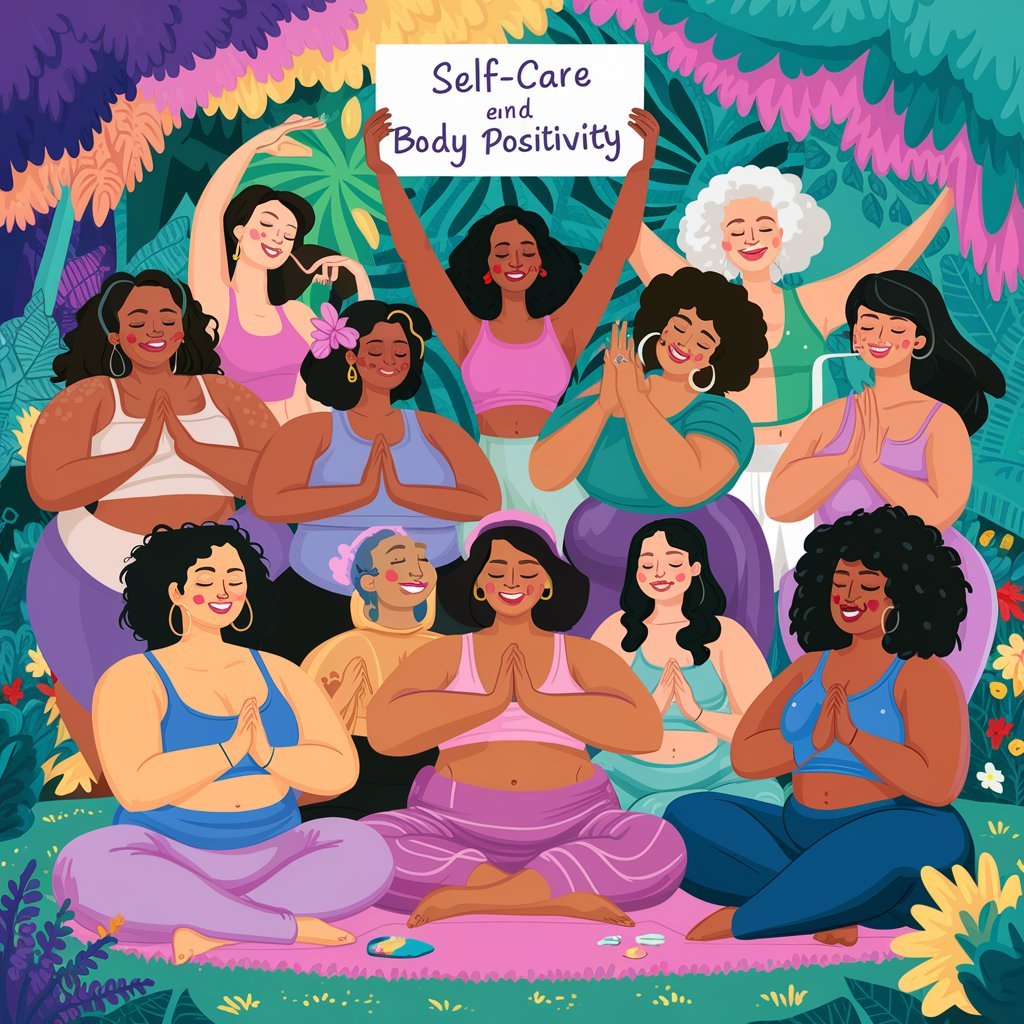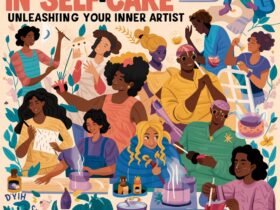Self-Care and Minimalism: Living with Intentionality

Hey there, my young and curious friends of 2024! It’s your favorite self-care explorer, Nita Sharda, here to take you on an exciting journey into the world of self-care and minimalism. Now, I know what you might be thinking – “Minimalism? Isn’t that just about getting rid of all your stuff?” But trust me, there’s so much more to it than that!
Today, we’re going to put on our explorer hats and discover what self-care and minimalism are all about, and how they can help us live with intentionality and purpose. But before we dive in, let me make one thing clear – this is not about putting anyone on the spot or making them feel like they need to be perfect. It’s simply about empowering you with the knowledge and tools to take care of yourself and live a life that feels authentic and meaningful to you.
So, are you ready to join me on this self-care and minimalism adventure? Let’s go!
What is Self-Care?
First things first, let’s talk about what self-care actually is. Self-care is the practice of taking care of ourselves – physically, mentally, emotionally, and spiritually. It’s about doing things that make us feel good, help us recharge, and support our overall wellbeing.
Self-care can look different for everyone, but some common examples include:
- Getting enough sleep and rest
- Eating nutritious foods that fuel our bodies
- Exercising and moving our bodies in ways that feel good
- Taking breaks and doing things we enjoy, like reading, playing, or creating art
- Practicing relaxation techniques like deep breathing or meditation
- Expressing our feelings and needs in healthy ways
- Setting boundaries and saying no when we need to
The key to self-care is listening to our bodies and minds, and doing what feels right for us in the moment. It’s not about being selfish or indulgent, but rather about taking responsibility for our own wellbeing so that we can show up as our best selves in all areas of our lives.
Why is Self-Care Important for Living with Intentionality?
So, why is self-care so important, especially when it comes to living with intentionality? Here are a few key reasons:
It Helps Us Prioritize What Matters Most
One of the key benefits of self-care is that it helps us prioritize what matters most in our lives. When we take the time to tune in to our bodies and minds, and do things that support our overall wellbeing, we’re better equipped to identify what truly matters to us and make choices that align with our values and goals.
This can be especially important in a world that often promotes busyness and productivity over self-care and intentionality. By practicing self-care regularly, we’re building the inner clarity and resilience we need to stay focused on what truly matters, even in the face of distractions or challenges.
It Supports Our Physical and Mental Health
Self-care is also important for supporting our physical and mental health. When we prioritize things like healthy eating, regular exercise, and stress management, we’re giving our bodies and minds the fuel and support they need to function at their best.
This can be especially important for young people who are still growing and developing, both physically and mentally. By establishing healthy self-care habits early on, we’re setting ourselves up for a lifetime of physical and mental wellbeing.
It Helps Us Live with Purpose and Meaning
Finally, self-care is important for helping us live with purpose and meaning. When we take the time to reflect on what truly matters to us, and make choices that align with our values and goals, we’re more likely to feel a sense of fulfillment and satisfaction in our lives.
This can be especially important in a world that often promotes external measures of success, like wealth or status, over internal measures of wellbeing and purpose. By practicing self-care regularly, we’re building the inner strength and resilience we need to stay true to ourselves and live a life that feels authentic and meaningful to us.
What is Minimalism?
Now that we’ve talked about self-care, let’s explore the concept of minimalism. Minimalism is the practice of living with intention and simplicity, and focusing on what truly matters most in our lives.
Minimalism involves several key principles, including:
- Identifying our values and priorities, and aligning our choices and behaviors with them
- Letting go of excess possessions, activities, and commitments that don’t serve our wellbeing or purpose
- Cultivating gratitude and contentment with what we have, rather than constantly seeking more
- Embracing simplicity and intentionality in all areas of our lives, from our relationships to our daily routines
- Finding joy and meaning in experiences and connections, rather than material possessions or external validation
Minimalism is important because it helps us live with greater intention, purpose, and fulfillment, and frees up our time, energy, and resources for the things that truly matter most to us.
Why is Minimalism Important for Living with Intentionality?
So, why is minimalism so important, especially when it comes to living with intentionality? Here are a few key reasons:
It Helps Us Focus on What Truly Matters
One of the key benefits of minimalism is that it helps us focus on what truly matters in our lives. When we let go of excess possessions, activities, and commitments that don’t serve our wellbeing or purpose, we create more space and energy for the things that do.
This can be especially important in a world that often promotes consumerism and busyness over intentionality and purpose. By practicing minimalism regularly, we’re building the inner clarity and focus we need to stay true to ourselves and our values, even in the face of distractions or temptations.
It Promotes Gratitude and Contentment
Minimalism is also important for promoting gratitude and contentment in our lives. When we learn to appreciate and find joy in what we already have, rather than constantly seeking more, we’re more likely to feel a sense of abundance and fulfillment in our lives.
This can be especially important for young people who may be bombarded with messages from the media and society about what they “need” to be happy or successful. By practicing minimalism regularly, we’re building the inner resilience and contentment we need to stay grounded and grateful, even in the face of external pressures or challenges.
It Supports Sustainability and Social Responsibility
Finally, minimalism is important for supporting sustainability and social responsibility in our lives. When we consume less and focus on what truly matters, we’re not only reducing our environmental impact, but also freeing up resources and energy to give back to our communities and the world around us.
This can be especially important for young people who are growing up in a world facing significant social and environmental challenges. By practicing minimalism regularly, we’re building the inner awareness and responsibility we need to be conscious consumers and engaged global citizens.
Living with Intentionality through Self-Care and Minimalism
So, how can we bring self-care and minimalism together to live with greater intentionality and purpose? Here are a few key strategies:
Identify Your Values and Priorities
The first step in living with intentionality through self-care and minimalism is to identify your values and priorities. This means taking the time to reflect on what truly matters to you, and what kind of life you want to live.
Some questions to consider when identifying your values and priorities include:
- What brings you joy and fulfillment?
- What are your strengths and passions?
- What kind of impact do you want to have on the world around you?
- What relationships and experiences are most important to you?
- What do you want to be remembered for?
By identifying your values and priorities, you’re creating a roadmap for living with greater intentionality and purpose, and aligning your choices and behaviors with what truly matters to you.
Simplify Your Life and Possessions
The next step in living with intentionality through self-care and minimalism is to simplify your life and possessions. This means letting go of excess clutter, activities, and commitments that don’t serve your wellbeing or purpose, and focusing on what truly matters.
Some tips for simplifying your life and possessions include:
- Decluttering your space and donating or selling items that no longer serve you
- Saying no to activities or commitments that don’t align with your values or priorities
- Streamlining your daily routines and habits to create more space and energy for what matters most
- Embracing minimalist principles like “less is more” and “quality over quantity”
- Cultivating gratitude and contentment with what you already have
By simplifying your life and possessions, you’re creating more space and energy for the things that truly matter, and reducing the distractions and stressors that can pull you away from your values and priorities.
Practice Self-Care and Mindfulness
The final step in living with intentionality through self-care and minimalism is to practice self-care and mindfulness. This means taking the time to tune













Leave a Reply